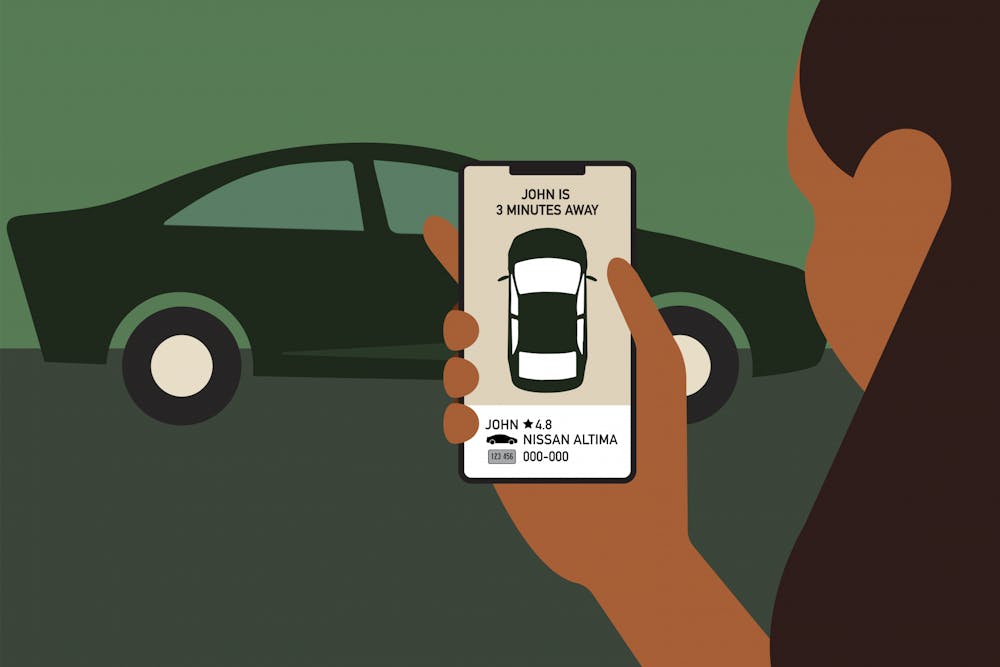Samantha Josephson, a fourth-year political science student and former sister of USC’s Alpha Gamma Delta chapter, was on track to attend Drexel University's law school in Philadelphia in 2019.
But while waiting for an Uber during a Friday night out with her friends, Josephson mistakenly entered the wrong vehicle and was kidnapped. Her abduction and murder shocked USC and the nation at large.
Four years later, Josephson's death continues to inspire action across campus and at the federal level.
On Jan. 5, an act, coined "Sami's Law," was signed by President Joe Biden. The bill works to address safety requirements for passengers and drivers of ride-sharing companies.

The act requires the Government Accountability Office to submit a report every other year to Congress that documents physical and sexual assaults, requires background checks for drivers and oversees rider and driver safety precautions implemented by ride-sharing companies.
Following Josephson's disappearance and death, Associate Vice President of Student Life Anna Edwards said students across campus experienced “unbelievable pain.”
“She was so well connected with lots of students and student organizations, and it’s just hard to make sense of something so horrific that happened in our community,” Edwards said.
Former Student Body Vice President and a sister of USC's Alpha Gamma Delta chapter Maia Porzio said many members "looked up" to Josephson and her ambitions.
“She was about to graduate," Porzio said. "(She) was a role model for a lot of people in the chapter, who then passed away in a serious situation like this.”
Josephson's parents founded the #WhatsMyName Foundation to bring awareness to Josephson's story and serve as a reminder for ride-share safety.
According to its website, the foundation encourages passengers to ask "What's my name?" so users can make sure they are entering the correct car and ensure that "no other family would have to suffer this kind of loss."
#What'sMyName developed the acronym S.A.M.I. (Stop, Ask, Match, Inform) as a way for people to remember the steps of confirming their ride-share vehicle before they enter it.
Collaborating with Josephson’s parents, Porzio and then-Student Body President Issy Rushton introduced Safety Week. The week educated students on safety resources and had a day dedicated to Josephson. Josephson's father, Seymour Josephson, talked to students via Zoom about how they can stay safe when entering an Uber or Lyft.
Outside of Safety Week, the university also teaches Josephson's story through the University 101 curriculum as a way to maintain her memory. In her class, U101 instructor and undergraduate academic advisor Brandi Byers tells Josephson's story and discusses how to safely use ride-sharing apps.
“A lot of the students, particularly in-state students, talked a lot about how their parents either wouldn’t let them do any ride-sharing, or they would make them go through the steps,” Byers said.
Byers said that while Sami’s Law doesn’t encompass every aspect of ride-share safety, it is a start. She also hopes that Sami's Law will continue to help legitimize Uber and Lyft drivers by keeping fake drivers off the street.
While Edwards said Sami's Law marks progress in providing safety for passengers using ride-sharing apps, she also said staying aware and alert when entering an unknown vehicle is something that everyone should do, on or off campus.
"The responsibility is for folks — whether it's an advisor or a staff person — to really incorporate the tenants of the message and what her story means," Edwards said. “When someone asks you your name and there's a light up sign, all of those things are because of what happened to her.”

